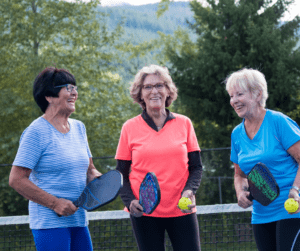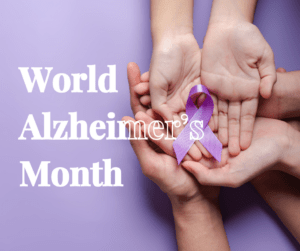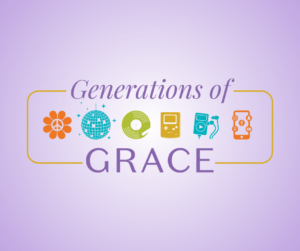Understanding Senior Depression: Signs, Causes, and Support During Depression Awareness Month
October 9th, 2024
October is recognized as Depression Awareness Month, a time dedicated to shedding light on the importance of mental health and breaking down the stigma surrounding depression. While depression can affect individuals of any age, it is particularly common in seniors, who face unique challenges as they age. Senior depression is often underdiagnosed and undertreated but raising awareness during this month can help families and caregivers identify the signs and provide much-needed support.
In this blog, we will explore the symptoms, causes, and treatment options for senior depression and discuss how we can offer better care and support for our loved ones during Depression Awareness Month and beyond.
What is Senior Depression?
Senior depression, or late-life depression, refers to depressive episodes that occur in older adults. While it is not a normal part of aging, it becomes more common as people get older. Many seniors face unique emotional challenges, such as physical health issues, loss of loved ones, or changes in living situations, all of which can contribute to depression.
Because symptoms of depression in seniors may be mistaken for other conditions like dementia or medication side effects, it often goes unrecognized. Depression Awareness Month is a crucial opportunity to promote education about this issue and encourage early intervention to improve seniors’ mental health.
Signs and Symptoms of Senior Depression
Depression in seniors can look different from depression in younger adults. Recognizing the symptoms, especially during Depression Awareness Month, can be the first step toward getting help.
Here are some common signs of depression in older adults:
- Persistent sadness or feeling empty: A prolonged feeling of hopelessness or despair is one of the most common symptoms.
- Loss of interest in activities: Depression can cause seniors to lose interest in hobbies, socializing, and activities they once enjoyed.
- Appetite and weight changes: A significant increase or decrease in appetite, leading to noticeable weight changes, can signal depression.
- Sleep problems: Difficulty falling asleep, staying asleep, or oversleeping can indicate emotional distress.
- Fatigue and lack of energy: Seniors may experience a persistent lack of energy and motivation.
- Difficulty concentrating: Cognitive issues, such as trouble focusing, remembering, or making decisions, can be linked to depression.
- Feelings of worthlessness or guilt: Seniors may feel like a burden to their families or experience intense guilt.
- Thoughts of death or suicide: In severe cases, depression can lead to thoughts of self-harm or suicide, which require immediate professional help.
These symptoms can easily be overlooked or dismissed as part of aging, but during Depression Awareness Month, it’s important to bring attention to these warning signs and encourage seniors to seek help.
Causes of Senior Depression
The causes of senior depression are varied and can result from a combination of physical, emotional, and environmental factors. Understanding these causes is an important part of raising awareness during this time.
- Chronic Health Issues
Many seniors face chronic conditions like heart disease, arthritis, and diabetes, which can limit independence and increase feelings of despair. The physical toll of illness, coupled with emotional challenges, can lead to depression.
- Grief and Loss
Seniors may face the loss of a spouse, friends, or family members, which can trigger prolonged grief and sadness. Depression can arise as they cope with feelings of loneliness or an inability to adjust to life after loss.
- Social Isolation
Retirement, limited mobility, or living far from family can lead to social isolation. Lack of social interaction is a major contributor to senior depression, particularly when seniors lose access to activities that brought them joy and purpose.
- Changes in Living Situation
Moving to an assisted living facility, nursing home, or even a relative’s home can feel disorienting and upsetting. The loss of independence and familiar surroundings may exacerbate feelings of sadness or hopelessness.
- Financial Concerns
Living on a fixed income can lead to anxiety about finances, especially with rising healthcare costs. This financial pressure may add to feelings of stress and helplessness.
- Cognitive Decline
Depression is common in the early stages of dementia or Alzheimer’s disease. As seniors struggle with memory and cognitive function, depression may develop alongside these conditions.
Treatment Options for Senior Depression
During Depression Awareness Month, it’s essential to emphasize that depression in seniors is treatable, and help is available. A combination of treatments can improve both mental and physical well-being. Here are some of the most effective approaches:
- Medication: Antidepressants can be an effective treatment, though finding the right type and dosage may take time, especially when seniors are also managing other health conditions. Doctors carefully monitor seniors on medication to minimize side effects.
- Psychotherapy: Talk therapy, including cognitive-behavioral therapy (CBT), is highly effective in treating depression. It helps seniors address their feelings of loss, loneliness, and worthlessness while learning positive coping strategies.
- Exercise: Physical activity can significantly improve mood by boosting serotonin and endorphin levels. Even light activities, such as walking or swimming, can have a positive impact on mental health.
- Social Interaction: Engaging with others, whether through community groups, family visits, or even virtual platforms, is a powerful tool in combating depression and loneliness.
- Diet and Lifestyle: A healthy diet and good sleep hygiene are essential components of managing depression. Encouraging seniors to eat well-balanced meals and maintain a consistent sleep schedule can improve their mood.
- Support Groups: Participating in support groups offers seniors the chance to connect with others experiencing similar challenges. These groups, which can be found locally or online, help reduce the stigma of depression and provide emotional support.
Supporting a Senior with Depression
If you are caring for a senior or have a loved one showing signs of depression, there are several ways to offer support. Depression Awareness Month is a great time to take action:
- Be Aware of the Signs: Pay attention to changes in mood, behavior, and physical health. Early detection is key to getting effective treatment.
- Encourage Seeking Help: Gently suggest professional help, such as seeing a doctor or therapist. Many seniors resist the idea of needing help, so offering support with kindness and patience is important.
- Promote Social Engagement: Encourage your loved one to participate in social activities they enjoy, whether that’s volunteering, attending group events, or visiting friends.
- Offer Emotional and Practical Support: Be there for your loved one with regular visits, phone calls, or help with daily tasks. Knowing someone cares can make a big difference in a senior’s life.
Taking the Next Step During Depression Awareness Month
October’s Depression Awareness Month serves as a vital reminder of the importance of mental health at every stage of life, especially for seniors who are more vulnerable to depression. By raising awareness, recognizing the symptoms, and offering compassionate support, we can help seniors get the treatment they need and improve their quality of life.
At Grace Management, Inc., we are committed to enhancing the well-being of seniors by providing holistic, compassionate care that addresses both physical and emotional health. During Depression Awareness Month, we stand ready to support seniors and their families in identifying the signs of depression and finding the best path to wellness. If you or a loved one is struggling with depression, our caring professionals are here to help. Let’s work together to create a future where all seniors can thrive emotionally and live their best lives.










